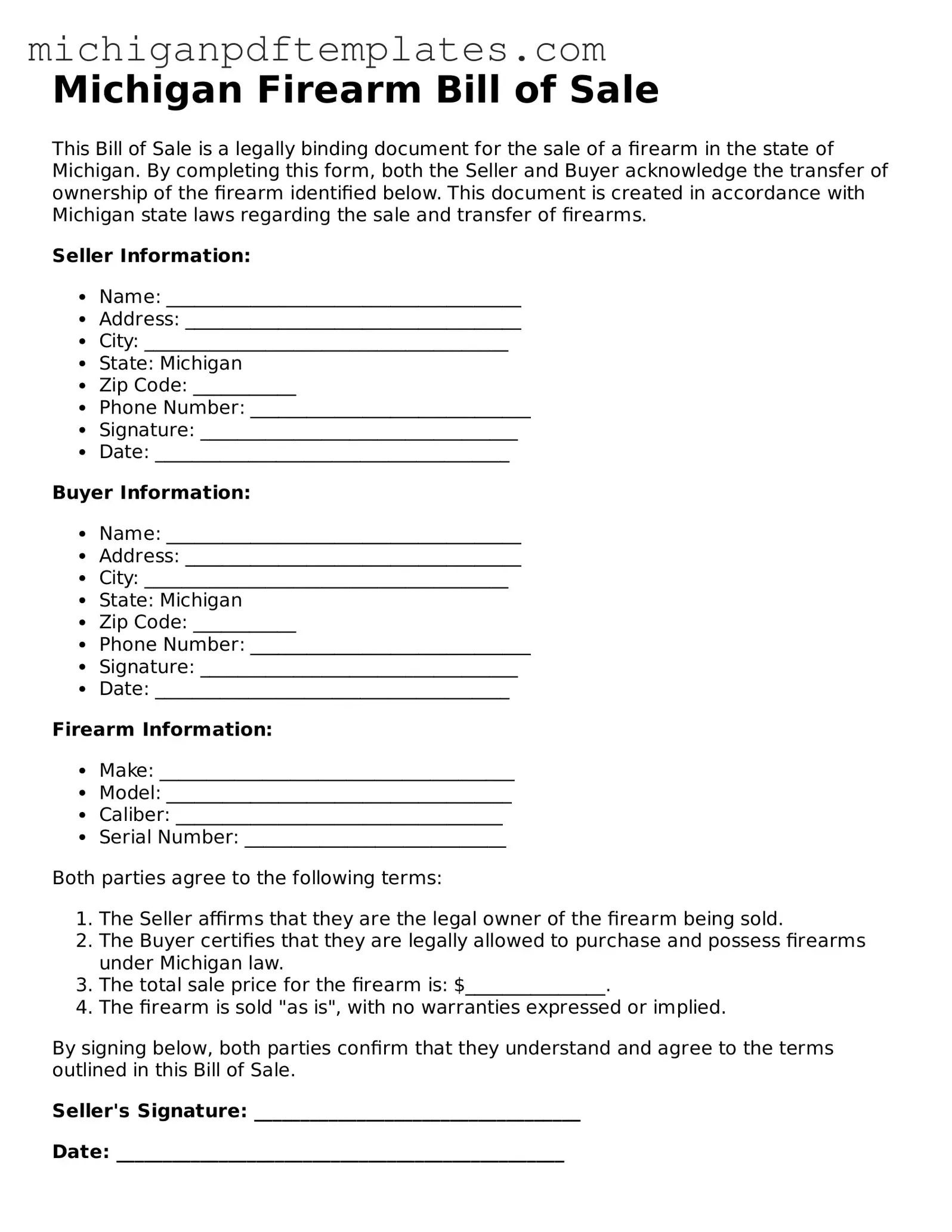Legal Michigan Firearm Bill of Sale Template
The Michigan Firearm Bill of Sale form serves as a crucial document for individuals engaged in the private sale or transfer of firearms within the state. This form not only provides a record of the transaction but also helps ensure compliance with state laws. For those looking to navigate this process smoothly, filling out the form is essential; click the button below to get started.
Get Your Form Now

Legal Michigan Firearm Bill of Sale Template
Get Your Form Now

Get Your Form Now
or
▼ PDF Form
Finish this form quickly and move on
Fill in and complete Firearm Bill of Sale online quickly.